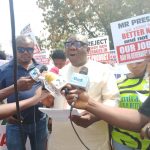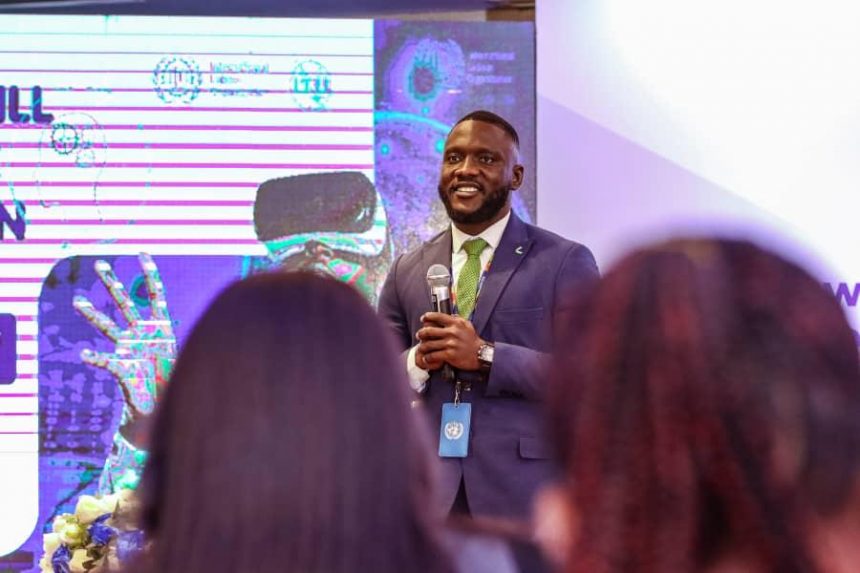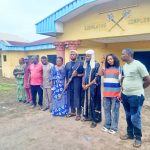How Nigeria can indeed tackle its poverty problems via effective and deliberate social protection implementation
By Segun Tekun
According to a November 2025 report by the World Bank, social protection in Nigeria accounts for just 0.14% of Nigeria’s Gross Domestic Product (GDP) spending, a figure that is insignificant in the fight against poverty, and thus, a clear indication of under-investment.
Furthermore, the report says Nigeria stands the risk of social protection decline in an event where foreign donors withdraw their support as foreign donations account for about 60% of social protection spending in Nigeria, 90% of which comes from World Bank.
This statistics is a disturbing truth about the state of social protection in Nigeria.
From available statistics, Nigeria’s investment in social safety net programmes is far below the international threshold.
According to ILO (International Labour Organisation) Nigeria’s budgetary allocation to social protection between 2010 and 2021 has been as low as an average of 0.45 of its GDP.
According to available reports, only 14.8 percent of Nigerians are covered by social protection despite it being a right guaranteed in various international laws including universal declarations of human right.
According to further reports, Nigeria’s spending on social protection is below the budgeted figures year in year out, inspite of the fact that the budget itself is already low and below the threshold enough to make any noticeable impact in the lives of the citizens.
It is a fact that despite numerous social intervention schemes in Nigeria, ranging from conditional cash transfers to school feeding programmes and national social safety nets programme, to mention but a few, poverty is still on the increase in Nigeria. According to the November 2025 World Bank report, the various Government-funded social protection programmes in Nigeria have not been able to reduce poverty in Nigeria due to “poor design and benefit dilution”.
Furthermore, the report emphasized the fact that because the Government through the National Social Safety Nets Programme disburses a flat amount per household, poorer households in their larger structure are less impacted as “the money is stretched among more mouths” hence are less likely to become less poorer yet still.
The World Bank, talking about the National Home-Grown School Feeding Programme, while appreciating its purpose of feeding primary school pupils, lamented the fact that the programme by design, targets individuals instead of households. “Yet, they reach only children in grades one to three and cover a limited number of schools,” the World Bank said in a November 2025 report.
Having understood the issues, there is a need to proffer solutions. The solution revolves around how poverty can be effectively tackled in Nigeria, based on the peculiarities in Nigeria.
Poverty is a cancer in any society, it must therefore be fought with every goodwill and political will possible.
Nigeria is an LIMC (Low and Middle-Income Country), hence the poverty prevalence is a serious concern.
According to an October 2025 World Bank report, as quoted by BusinessDay as of October 8, 2025; “Poverty levels (in Nigeria) are projected to hit 61 percent in 2025 as 139 million people slipped below $3 per person per day, compared to 129 million people last year (2024) as weak growth and high inflation eroded purchasing power more sharply since 2019, largely reflecting pre-2023 policy missteps and external shocks.”
“Between 2019 and 2023, average consumption fell by 6.7 percent, especially in urban areas, while poverty rose from 40 percent (81 million people) to a projected 61 percent (139 million people) by 2025, with three-quarters of the increase occurring before 2023,” the report further said.
To solve these problems and reduce poverty, the social protection programmes should be given increased budget support especially in the aspect of budget implementation. The social register should be expanded and updated to correctly take into consideration the population that indeed needs social protection.
The school feeding programme should be expanded to cover more school children.
The national safety net programmes should be re-designed in ways they can impact significantly even in large families.
The practice of diversion and embezzlement of relief materials by Government officials should also be seriously frowned upon. Transparency must be the core of social protection in Nigeria.
The Economic and Financial Crimes Commission and other sister anti-corruption agencies in Nigeria should get involved to ensure that relief materials meant for the vulnerable don’t end up in the storage facilities of the powerful members of the society or in market places.
With the right reforms and the needed political will on the part of the Government and on the part of those implementing social protection programmes; poverty can be reduced via effective planning and deliberate implementation of social protection programmes.
In addition to the calls for deliberate reforms in social protection programmes, it is important to emphasize on a side-note, the fact that social protection alone cannot get people out of poverty, but it however provides a starting point.
To address poverty, we need combination of interventions including livelihoods support to existing beneficiaries. These interventions must be sequenced and layered carefully to ensure they produce maximum results, and that is where accountability and transparency on the part of Government officials and the intervention programme officials come into the conversation.
On one hand, we need well designed programmes, to effectively address poverty in Nigeria; on the other hand, we need people with integrity to lead the intervention programmes, to ensure the intervention materials and the intervention efforts are not diverted into private pockets under any guise.
More often than not, intervention materials have ended up in the market in contravention of the “not for sale” tags on them, hence integrity on the part of the intervention programme officials is as important as the good design of the intervention programmes if we must effectively and efficiently address poverty in Nigeria.
Segun Tekun is a former UNICEF and ILO Social Protection expert












